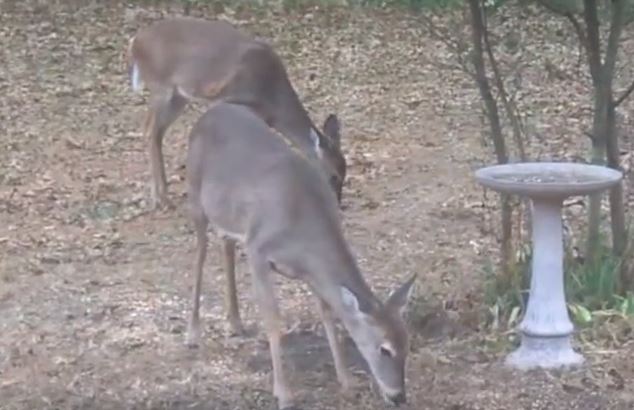The white-tailed deer is a highly adaptable animal that can live in a variety of habitat types and situations. Lakeway, Texas, for example, works for them. So well, in fact, that the city has been trying to keep whitetail numbers at manageable levels for almost two decades. It’s worked, but not everyone is on board with Lakeway’s management program.
Whitetail call most of Texas home, but they really do well in suburban environments where they have irrigated food sources and protection from predators. This makes Lakeway and other suburban fringes found throughout sprawling Texas prime real estate for deer.
Lakeway Deer Population
Problems with the Lakeway deer population culminated in the late 1990s. It was at that time the City of Lakeway started looking into managing an ongoing problem that was plaguing residents. With the help of Texas Parks and Wildlife Department (TPWD) the City of Lakeway took action; they trapped 650 deer that first year. While the management program has been successful in maintaining whitetail numbers, some residents in the community believe the method is inhumane and want to explore other options.
Source: The City of Lakeway is widely known for its heavy population of urban deer. For the most part, deer are considered to be a desirable asset for the city. Their affable behavior and cute appearance make them attractive to most people. Their diminished fear of humans is also interesting and adds to their desirability. It is quite a unique situation to have so many deer in proximity of homes.
The City of Lakeway says the urban deer herd found there has impacted Lakeway negatively through increased deer-vehicle crashes and human-deer encounters since prior to their management program. Biologists will tell you that when the deer population is too large, it also negatively impacts the health of the herd.

Lakeway Deer Management
Deer are removed from Lakeway through a permit the City obtained from TPWD. The permit, called a Trap, Transport and Process (TTP) Permit, allows cities to trap white-tailed deer and transport them to a facility where the animals are then processed and the meat donated to charitable organizations. It seems like a win-win for Lakeway residents and those in need of lean protein, but others argue that it’s not that good for the deer.
Source: “My belief, my basic belief, is that no animal should ever be treated cruelly, there’s no reason for it,” says Lakeway resident Rita Cross. “There’s always options, there’s always other ways of control and management.”
Cross started the nonprofit Citizen Advocates for Animals (CAFA). They want to see the city implement a sterilization program that utilizes ovariectomy – the removal of a doe’s ovaries. They say the process is humane and less invasive than neutering cats and dogs. The process takes about 20 minutes, and the deer receive pain management during surgery and post-surgery.
Their first goal: raising $12,000 to bring in two wildlife biologists to count how many deer live in Lakeway. And then after surveys are done, they’ll work with biologists to create a sterilization program.
City of Lakeway: Willing to Try
The City of Lakeway has noted that they will not help the nonprofit fund the CAFA deer management initiative, but City Manager of Lakeway, Steve Jones, says the City would consider working with biologists to develop a program that would supplement or complement what’s already being done to manage the Lakeway deer population.
Jones reiterated that the City will continue to trap until something else proves it can achieve their goals, maintain a stable white-tailed deer population within Lakeway. The goal is not to eliminate deer from Lakeway, but to maintain healthy deer numbers and residents in Lakeway. The City typically traps 100-800 deer per year, but over the past several years those numbers have been stable and on the low end of that range.
It would appear that the deer management program implemented by the City of Lakeway is working. It also seems they will stay the course until another option is funded. The effectiveness, or lack thereof, of any deer sterilization program have yet to be proven. At an estimated $800-$1,000 per doe, the biggest concern of ovariectomies are the costs.